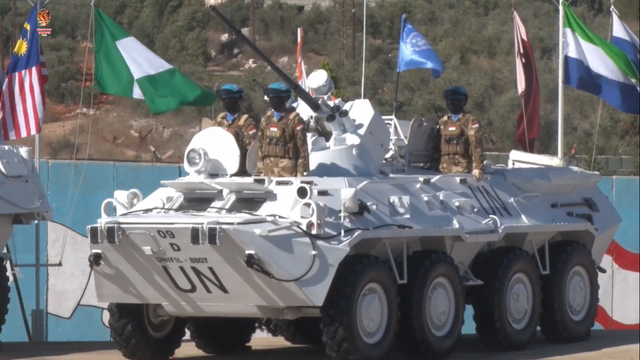The United Nations has stated that its peacekeeping forces in southern Lebanon, known as UNIFIL, will remain in place despite mounting pressure from Israeli Prime Minister Benjamin Netanyahu for them to withdraw due to the ongoing conflict between Israel and Hezbollah. This comes as tensions continue to escalate between Israel and Iran-backed Hezbollah fighters in the region.
Speaking to reporters on Monday, Jean-Pierre Lacroix, head of U.N. peacekeeping operations, made it clear that UNIFIL would not bow to Israel's demands to move out of the border areas where the fighting is most intense. Lacroix emphasized that the decision to keep peacekeepers in their current positions has the full support of the U.N. Security Council and the nations contributing troops to the force.
Netanyahu has repeatedly called for UNIFIL to pull out of the region, arguing that the peacekeepers are inadvertently acting as a "human shield" for Hezbollah fighters. He also warned that the peacekeepers could face severe risks if they remain. In a video address, Netanyahu appealed directly to U.N. Secretary-General António Guterres, urging him to remove UNIFIL forces from "harm's way." However, U.N. officials, along with several member states, have condemned any targeting of peacekeepers and emphasized their mission's importance in maintaining regional stability.
The conflict between Israel and Hezbollah escalated following a missile barrage on October 1, prompting Israeli forces to launch a ground incursion into southern Lebanon. Both sides have been trading fire along the border, forcing thousands of people to flee from their homes. Meanwhile, U.S. President Joe Biden has urged Israel to refrain from further military action that could worsen the situation, particularly in areas where UNIFIL operates. Biden reiterated that the safety of peacekeepers must be respected, underscoring concerns that an attack on U.N. forces could deepen the already volatile conflict.
UNIFIL, established in 1978, was originally tasked with overseeing the withdrawal of Israeli forces from Lebanon and ensuring peace along the border. The force has since become a critical part of maintaining stability between Israel and Lebanon, though it has faced significant challenges, particularly as Hezbollah's influence has grown in southern Lebanon.
A recent meeting of the U.N. Security Council expressed "strong concern" over the injuries sustained by several peacekeepers in separate incidents, including direct attacks from Israeli forces. The council called for the safety and security of U.N. personnel to be guaranteed, warning that deliberate attacks on peacekeepers could constitute war crimes. The incidents drew international criticism, with Spain, France, and Italy condemning Israel's actions, while Netanyahu denied that Israel had intentionally targeted U.N. personnel.
Amidst the growing tensions, UNIFIL spokesperson Andrea Tenenti also pushed back against Netanyahu's claims, stating that peacekeepers are not providing cover for Hezbollah militants. He stressed that UNIFIL's role is to monitor the situation and maintain peace in the region, and any attacks on its forces are unacceptable.
In the background of this local conflict, Israel is also considering how to respond to an Iranian missile attack launched earlier this month. While Netanyahu has expressed a willingness to target Iran's military infrastructure, he has reassured U.S. officials that the retaliation will avoid striking Iran's nuclear or oil facilities to prevent sparking a larger regional war.




